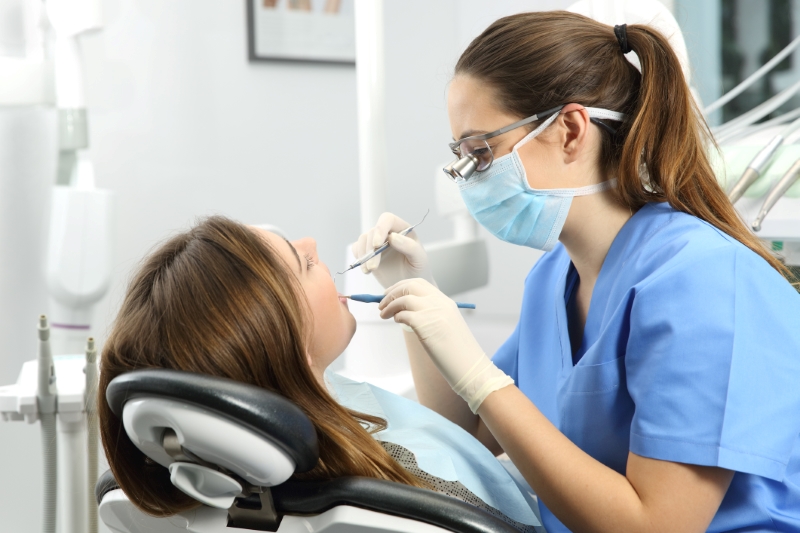Oral Hygiene
Oral hygiene is the practice of keeping one’s mouth clean and free of disease and other problems (e.g. bad breath) by regular brushing of the teeth (dental hygiene) and cleaning between the teeth. It is important that oral hygiene be carried out on a regular basis to enable prevention of dental disease and bad breath. The most common types of dental disease are tooth decay (cavities, dental caries) and gum diseases, including gingivitis, and periodontitis.
[1]Proper oral hygiene requires regular brushing and interdental cleaning
General guidelines for adults suggest brushing at least twice a day with a fluoridated toothpaste: brushing last thing at night and at least on one other occasion.[2] Cleaning between the teeth is called interdental cleaning and is as important as tooth brushing.[3] This is because a toothbrush cannot reach between the teeth and therefore only removes about 50% of plaque from the surface of the teeth.[4] There are many tools to clean between the teeth, including floss, tape and interdental brushes; it is up to each individual to choose which tool they prefer to use.
Sometimes white or straight teeth are associated with oral hygiene. However, a hygienic mouth can have stained teeth or crooked teeth. To improve the appearance of their teeth, people may use tooth whitening treatments and orthodontics.
A healthy smile
The importance of the role of the oral microbiome in dental health has been increasingly recognized.[5][6][7] Data from human oral microbiology research shows that a commensal microflora can switch to an opportunistic pathogenic flora through complex changes in their environment.[8] These changes are driven by the host rather than the bacteria.[9] Archeological evidence of calcified dental plaque shows marked shifts in the oral microbiome towards a disease-associated microbiome with cariogenic bacteria becoming dominant during the Industrial Revolution.[10][11] Modern oral microbiota are significantly less diverse than historic populations.[10] Caries (cavities), for example, have become a major endemic disease, affecting 60-90% of schoolchildren in industrialized countries.[12] In contrast, dental caries and periodontal diseases were rare in pre-Neolithic and early hominins.[11][13]
Oral health: A window to your overall health
Your oral health is more important than you might realize. Learn how the health of your mouth, teeth and gums can affect your general health.
By Mayo Clinic Staff
Did you know that your oral health offers clues about your overall health — or that problems in your mouth can affect the rest of your body? Protect yourself by learning more about the connection between your oral health and overall health.
What’s the connection between oral health and overall health?
Like other areas of the body, your mouth teems with bacteria — mostly harmless. But your mouth is the entry point to your digestive and respiratory tracts, and some of these bacteria can cause disease.
Normally the body’s natural defenses and good oral health care, such as daily brushing and flossing, keep bacteria under control. However, without proper oral hygiene, bacteria can reach levels that might lead to oral infections, such as tooth decay and gum disease.



